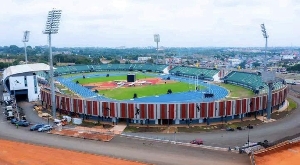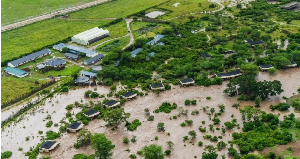General News of Friday, 26 November 1999
Source: Reuters
Donors pledge $1.7 billion for Ghana in 2000-2001
ACCRA, Nov 25 (Reuters) - International aid donors pledged $1.7 billion to Ghana for 2000/2001 after a meeting with the government in Accra, the World Bank country director for Ghana said.
Peter Harrold told a news briefing late on Wednesday after the close of the biennial meeting that the donors had also promised to find $80 million pledged but never disbursed for the previous two-year period just ending.
``The meeting reviewed the performance of the economy over the last two years and the donors resolved to support the programme of stabilisation and reform embarked on by the government,'' Harrold said.
The money pledged was an estimated $120 million below the government's forecast needs in 2000/2001.
``Several donors have indicated their willingness to provide additional programme support, but such assistance would depend on how fast the government puts in place its response to the adverse external conditions, as well as the quality of the measures implemented,'' Harrold said.
Ghana has been hit by falling world prices for its main exports, gold and cocoa. This has hit government revenue and caused a sharp depreciation in the cedi currency.
Harrold said the government planned various measures to address this, including an increase in Value Addex Tax and public spending cuts.
It had also outlined measures taken to reduce corruption, which the donors welcomed but said should be taken further.
The donors also welcomed government plans to intensify efforts to prevent the spread of AIDS.
Great emphasis was placed on the close link between improved agricultural productivity and poverty reduction.
Ghana's minister of food and agriculture, Joseph Owusu-Acheampong, who led the government side, outlined plans to modernise agricultural methods, which he said would lead to an increase in productivity and higher rural incomes.
Official figures show the proportion of people living in absolute poverty fell to 29.4 per cent in 1999 from 35.7 per cent in 1992, but the trend was uneven around the country.










